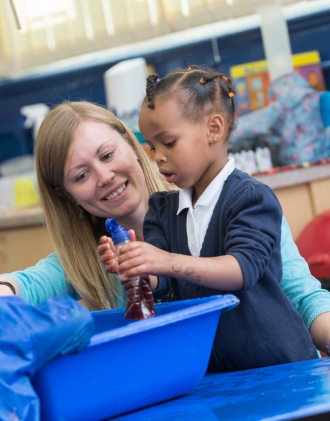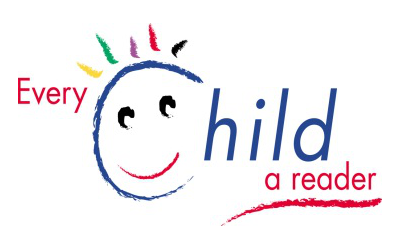Key Staff
Designated Senior Person for Safeguarding Children: Kevin Hawkins
Other members of the designated team for Safeguarding Children: Helen Barbour, Carrie Williams and Alan Thomson
Nominated Governor responsible for Child Protection: Gen Ellison- Smith
All staff on the designated team receive training every year. All staff in school have full training every 3 years and a short refresher each year.
If you have any safeguarding concerns, please contact the school and ask for one of thesafeguarding team.
What is Safeguarding?
Safeguarding is the action that is taken to promote the welfare of children and protect them from harm.
Safeguarding means:
• protecting children from abuse and maltreatment
• preventing harm to children’s health or development
• ensuring children grow up with the provision of safe and effective care
• taking action to enable all children and young people to have the best outcomes.
Safeguarding at Hannah More
At Hannah More, the health, safety and well-being of every child is our paramount concern. We listen to our pupils and take seriously what they tell us. Our aim is that children will enjoy their time as pupils in this school in a safe and secure environment where they are protected.
The curriculum is used to build confidence in pupils to ensure their own protection and understand the importance of protecting others.
Our school has a Child Protection Policy that follows the Local Safeguarding Children Board’s guidelines and procedures for any action which has to be taken to safeguard or promote the welfare of our children. The school has a legal duty to work with other agencies in protecting children from harm and responding to abuse.
In order to ensure children’s safety we have a number of policies outlining procedures and expectations of practice. These are:
3) Child Protection Policy, Procedures and Guidelines
5) Guide to safer working practice
Safeguarding children and child protection guidance and legislation applies to all children up to the age of 18.
What is Child Protection?
Child Protection is part of Safeguarding and promoting welfare. It refers to the activity that is undertaken to protect specfic children who are suffering, or are likely to suffer, significant harm. All staff are made aware of the Government's Guidance on Keeping Children Safe in Education. Part 1 of this document has been thoroughly read and understood by all staff.
Safeguarding and Child Protection Policy
Please click here to access our Safeguarding and Child Protection Policy.
FGM
Female Genital Mutilation is a form of child abuse and as such is dealt with under the schools Child Protection/Safeguarding policy. All parents requesting holiday leave for trips to countries where FGM is practised are reminded that it is illegal to remove a child from the UK for this purpose. You will be asked for assurance that this will not happen. It is mandatory for teachers to report to the police if they find, or are told, someone under 18 has undergone FGM. Further information on FGm is found in the following documents: Government's Multi Agency statutory guidance on FGM 2020 and Bristol Safeguarding Children's Board's Risk Assessment. Please click here to obtain more information on the correct procedure to follow when making a referral.
E-Safety
Hannah More recognises the benefits and opportunities which new technologies offer to teaching and learning. We encourage the use of technology in order to enhance skills and promote achievement. However, the accessible and global nature of the internet and variety of technologies available mean that we are also aware of potential risks and challenges associated with such use. To find out more please read our E-Safey policy by clicking here. Alternatively please click here to obtain further information and resources regarding E-Safety.
Take a look at Online Safety - Parental Awareness - some useful information for parents to help children stay safe online.
Keeping Children Safe in Education
Please click here to access the statutory guidance from the Department for Education. It is imperative that all staff (including volunteers) read this guidance and acknowledge that they have done so. Schools must have regard to the guidance when carrying out their duties to safeguard and promote the welfare of children. This document contains information on what schools should do and sets out the legal duties with which schools must comply.
The Prevent Duty
The Prevent duty is the requirement of schools to build pupils’ resilience to radicalisation by promoting fundamental British values and enabling them to challenge extremist views. Please click here to access departmental advice for schools on the Prevent Duty (DFE) Alternatively you can also refer to (Keeping Children Safe in Education) above for further information. The Designated Safeguarding Lead is trained a PREVENT trainer and delivers training to all staff. The designated team have also undertaken online training. At Hannah More we build children's resilience through our SMSC provision and indicated in this government publication. Further information about the school's approach to the Prevent duty is found in Appendix E of the Child Protection Policy.
Referrals to Children's Social Care or Early Help (First Response)
If anyone has a concern about a child's safety or wellbeing they should make a referral to First Response. Within school there would first be a discussion with a member of the designated team. We aim to work with families when we have concerns and rarely make a referral without first discussing the need for help with the parents. On occasions though this is necessary and whilst we recognise this can be upsetting for families, it is always our judgement about what is best for the child that will drive our actions.
Procedure for dealing with allegations of abuse against staff/headteacher
The procedure is outlined in the school's Safeguarding and Child Protection policy. The policy (in line with statutory guidance from the DFE) is designed to ensure that all staff, students and parents or carers are aware of the procedure for the investigation of allegations of abuse in order that all complaints are dealt with consistently, and as efficiently as possible.
Further Resources
- Keeping Bristol Safe Partnership
- All Statutory Guidance for Schools from the Government
- Safeguarding Children (NSPCC)
- Safeguarding children in whom illness is fabricated or induced
- National Action Plan to tackle child abuse linked to faith or belief
- National Information Centre on Children of Offenders
- Children Missing Education 2024
- Searching, Screening and Confiscation 2018





